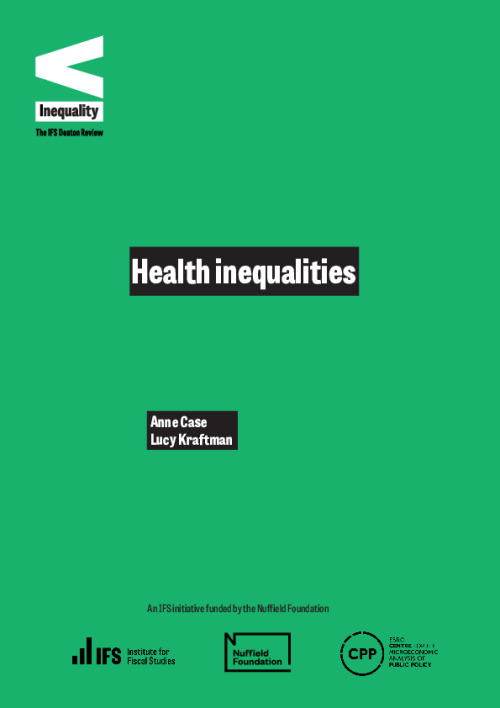- There are marked differences in life expectancy between the regions of England, between the countries in the UK, and between the UK and other wealthy countries. Within England, prior to the COVID-19 pandemic, life expectancy at birth was more than two years higher in London and the South East than in the North of England. For decades, life expectancy in Scotland has been two years lower than in other constituent countries. Throughout the UK, gains in life expectancy slowed considerably after 2010, proximately attributable to a slowdown in progress against cardiovascular disease. After many years of gains in life expectancy, something has gone seriously wrong. In 2019, the UK ranked 24th in the OECD in life expectancy, behind all other English-speaking countries (with the exception of the US) and nearly all countries of Western Europe.
- Gains in life expectancy have been stronger for men than for women in the UK over the past 50 years. Throughout the world, women live longer than men. However, since 1970, men’s life expectancy gains have outpaced those of women in most wealthy countries. The female–male gap in the UK, which stood at 6.3 years in 1970, had fallen to 3.7 years by 2018.
- In England, where much measurement has been done, there are large differences in mortality rates between less and more educated adults, and between less and more deprived places. Progress in closing these gaps for adults largely stalled after 2010, while gaps in early childhood between less and more deprived areas continued to close.
- The austerity measures enacted after the financial crisis of 2008 not only harmed many people directly and unequally, through reductions in public services, but may also have played a role in the anaemic reduction in mortality rates observed for adults after 2010. Evidence for this claim, however, is mixed. Gains in life expectancy did indeed slow in the UK after 2010, concurrent with the onset of austerity. However, mortality decline in midlife was slower in the UK than in other rich countries in the decades prior to austerity (1990–2009). Moreover, life expectancy changes across the rich countries of Europe correlate positively with the level of austerity incurred. Portugal, Spain, Ireland, Italy and Greece, with harsh austerity, continued to see rapid gains in life expectancy, while those in Great Britain faltered.
- Prescriptions on policy to improve the health of those left behind will need to wait for more and better data. It is not possible to understand the upstream mechanisms responsible for health outcomes using geographic indices of multiple deprivation. Such indices, which transform and combine social and economic health inputs at a small-area level, are not helpful in understanding the mechanisms linking health to income, class, employment and education. Release of matched census and mortality records holds out hope of real progress.
- The most promising approach to improving population health is to continue to focus on the health and well-being of children. This is true, not only for the children themselves, but to weaken the intergenerational transmission of deprivation. Birth cohort studies allow documentation of why and how some children enter adulthood on lower health trajectories, which place them at disadvantage throughout their lives. It is distressing that some important early-childhood indicators changed little between 1958 and 2000, in spite of improvements in the economy and markers of population health.
- COVID-19 has changed mortality patterns in the UK. The epidemic severely disrupted the normal provision of healthcare, and changed the epidemiological environment and the risks associated with work. Even so, gradients in mortality by local-area deprivation did not change in the first wave of the epidemic. However, according to provisional ONS data, death rates by ethnicity changed sharply in a way that was markedly different from pre-existing patterns. These outcomes echo findings in the US, where educational gradients in mortality were largely preserved while racial and ethnic differences changed distinctly.










